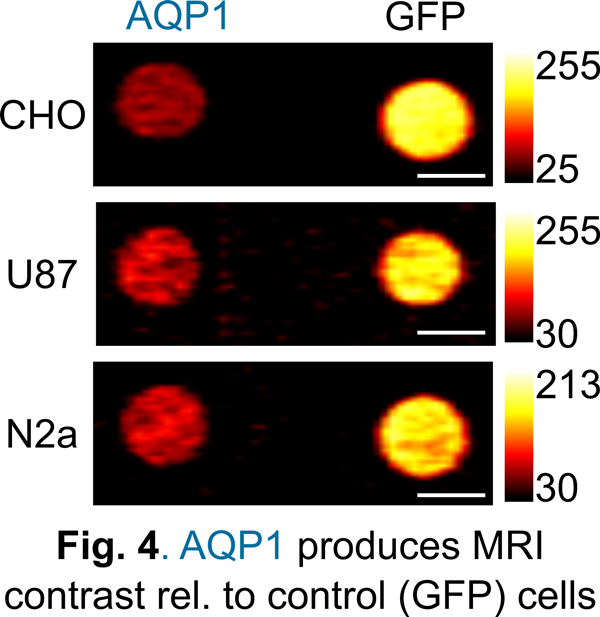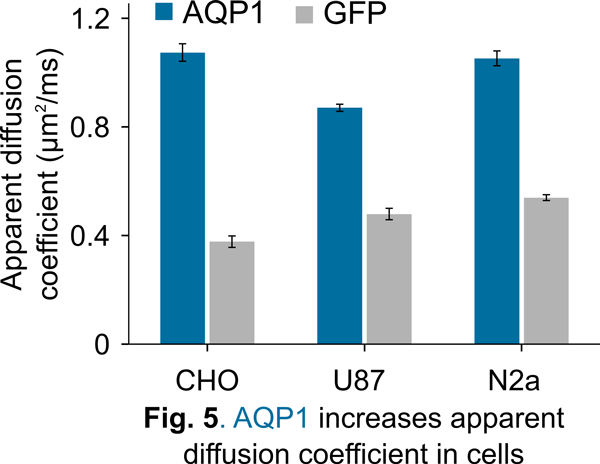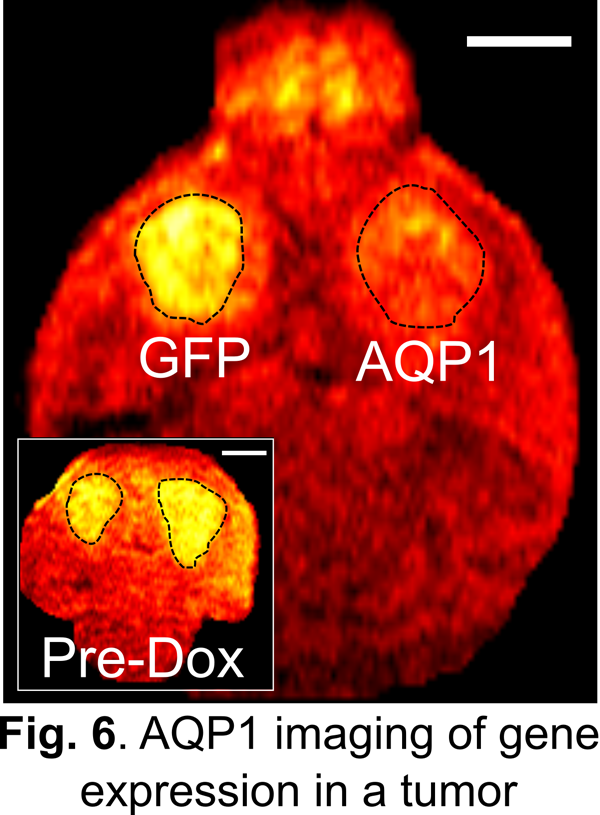Engineering biomolecular reporters for magnetic resonance imaging (MRI)
Motivation: Genetic reporters, such as the green fluorescent protein (GFP) and luciferase have fundamentally transformed the biological sciences by enabling researchers to directly image cellular function in intact, living cells. However, application of light-emitting proteins in the context of entire, living animals is highly challenging for the simple reason that visible photons penetrate poorly through deep-seated biological tissues. On the other hand, deep-tissue penetrant imaging modalities such as MRI lack a versatile repertoire of biomolecular reporters, akin to GFP, which largely constrains their applicability for molecular imaging. Indeed, existing reporters for MRI are frequently limited by their reliance on exogenous factors (such as metals), toxicity, and low sensitivity. Furthermore, relatively few MRI reporter genes have been turned into biochemical sensors for functional imaging in the context of intact, living animals.
 Our approach: To address the aforementioned challenges, we recently developed an entirely new class of reporter genes based on natural water channels (aquaporins) that render cells “MRI-visible” (Fig. 4) simply by increasing tissue water diffusion (Fig. 5).
Our approach: To address the aforementioned challenges, we recently developed an entirely new class of reporter genes based on natural water channels (aquaporins) that render cells “MRI-visible” (Fig. 4) simply by increasing tissue water diffusion (Fig. 5). Importantly, aquaporins are characterized by high sensitivity, low toxicity, and nonreliance on exogenous cofactors, enabling their application as robust reporters in vivo (Fig. 6). An ongoing focus of my lab is to apply protein engineering, directed evolution, and genome mining to develop aquaporin-based dynamic biomolecular sensors that can enable truly functional MRI with molecular precision.
Importantly, aquaporins are characterized by high sensitivity, low toxicity, and nonreliance on exogenous cofactors, enabling their application as robust reporters in vivo (Fig. 6). An ongoing focus of my lab is to apply protein engineering, directed evolution, and genome mining to develop aquaporin-based dynamic biomolecular sensors that can enable truly functional MRI with molecular precision. In addition, we also study new Mn2+ based metalloproteins with the goal of developing an orthogonal class of MRI reporters that can enable multiplexed imaging of cell signaling. Finally, we will extensively pursue interdisciplinary collaborations on and off-campus to apply the MRI reporters developed in our lab to a wide range of problems in fundamental and applied biology encompassing neurodegenerative diseases, addiction, traumatic brain injury, cancer immunotherapy, and gastrointestinal biology.
In addition, we also study new Mn2+ based metalloproteins with the goal of developing an orthogonal class of MRI reporters that can enable multiplexed imaging of cell signaling. Finally, we will extensively pursue interdisciplinary collaborations on and off-campus to apply the MRI reporters developed in our lab to a wide range of problems in fundamental and applied biology encompassing neurodegenerative diseases, addiction, traumatic brain injury, cancer immunotherapy, and gastrointestinal biology.